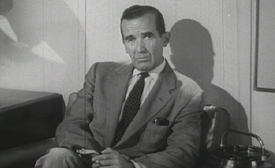philip seib

Philip Seib reviews Gregory Tomlin's work on the former USIA director.

With World Water Day coming up on March 22nd, this is a great time to consider the public diplomacy aspects of global water issues. CPD has a number of valuable resources right here on our site. Highlights include:
Successful public diplomacy is based on providing foreign publics what they need, be it information, a vaccination program, or help in securing economic well-being. A good example of working toward the latter can be found in a speech delivered by U.S. Assistant Secretary of State Anne Patterson in Jordan on February 25, during which she outlined some of the steps the United States is taking to "enhance regional trade and investment that will spur growth and jobs."
Among the principal assets of U.S. public diplomacy are American values. They are admired around the world, even by many people who dislike American policy. No other political system offers such extensive individual and systemic freedoms as those enumerated in the Bill of Rights. Showcasing and standing up for those freedoms should be at the heart of U.S. public diplomacy.
Among the principal assets of U.S. public diplomacy are American values. They are admired around the world, even by many people who dislike American policy. No other political system offers such extensive individual and systemic freedoms as those enumerated in the Bill of Rights. Showcasing and standing up for those freedoms should be at the heart of U.S. public diplomacy.
Soft power proponents tend to forget that the purpose of soft power, as with public diplomacy more broadly, is to advance the strategic interests of your country. The goal is not be “nice” or transiently popular, but to advance toward your foreign policy goals. Public diplomats are not social workers, and they should not allow themselves to be seen as such.







